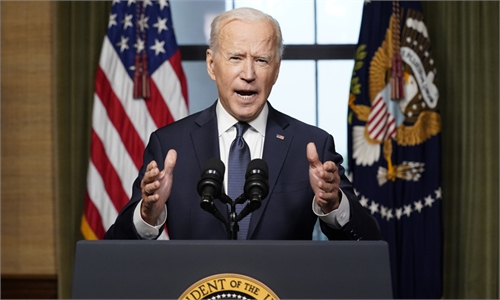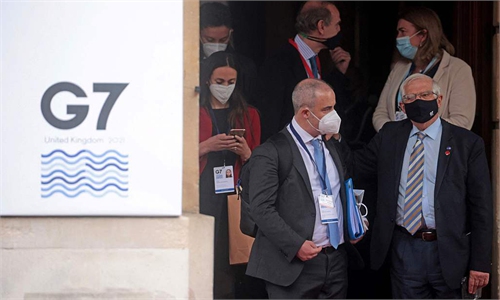
Investment File Photo: VCG
After years of fraught negotiations, a total of 130 countries last week agreed to back plans for a global minimum corporate tax rate of at least 15 percent, which the Paris-based Organisation for Economic Cooperation and Development (OECD) said could yield around $150 billion in additional global tax revenue annually, Reuters reported.
While the move may mark the first step toward the future of global corporation taxation, there is still plenty of taxing work ahead when it comes to how negotiators hammer out important technical details and whether they will face domestic legislative uncertainties.
Over the years, the establishment of a global minimum corporate tax rate has been an important goal of international tax reform among Western countries, as the gap between countries where multinational giants do business and where they report profits has widened. Now, to close that gap, countries need to agree on technical details by October so that the new rules can be implemented by 2023, according to Reuters.
While it seems that a consensus has been reportedly reached on a global minimum tax rate, actually implementing such a unified standard is no easy task. This is because various negotiators have adopted different tax rates and are experiencing different levels of economic development. Thus, specific rules on taxation details such as the base of profits subject to the minimum tax and the way of reallocating taxing rights may be conducive to ensuring steady inflow of tax revenue for one country, while undercutting other countries' taxation base. Even among developed countries, there is substantial conflict of interests as smaller European countries usually attract foreign investment through low tax rates as means of improving their global competitiveness.
Moreover, how these important technical details to be hammered out will also bring overhauls to the taxation systems in various countries, which may go through difficult legislation procedures. Take the EU for instance. A detailed deal on backing the global minimum tax rate will need a formal legislation to be passed upon the unanimous agreement from all EU members.
In China, the biggest developing country, there are also different views toward the fundamental change to global tax arrangements. Some experts believe that since the new deal may raise the effective tax rate to a certain extent, it will likely deal a blow to the country's foreign investment inflows, while others think the consumption potential within the Chinese market is enough to shrug off the impact of the new tax rate. Some also said that Chinese companies, especially those in the internet technology sector, may face new challenges in their overseas operations due to the changes of taxation rules.
Moreover, for other developing countries, the implementation of a unified global minimum corporate tax rate may create additional difficulties for their already ailing economies in the post-pandemic era.
As such, it is crucial the final agreement needs to take care of the interests of all parties when it comes to specific details like whether more of the taxing rights could be allocated to developing nations compared with developed ones. To end the decades-old dispute on global tax, we sincerely hope that the future negotiations could accommodate the interests of all parties so as to address everyone's concerns through comprehensive consultation.



